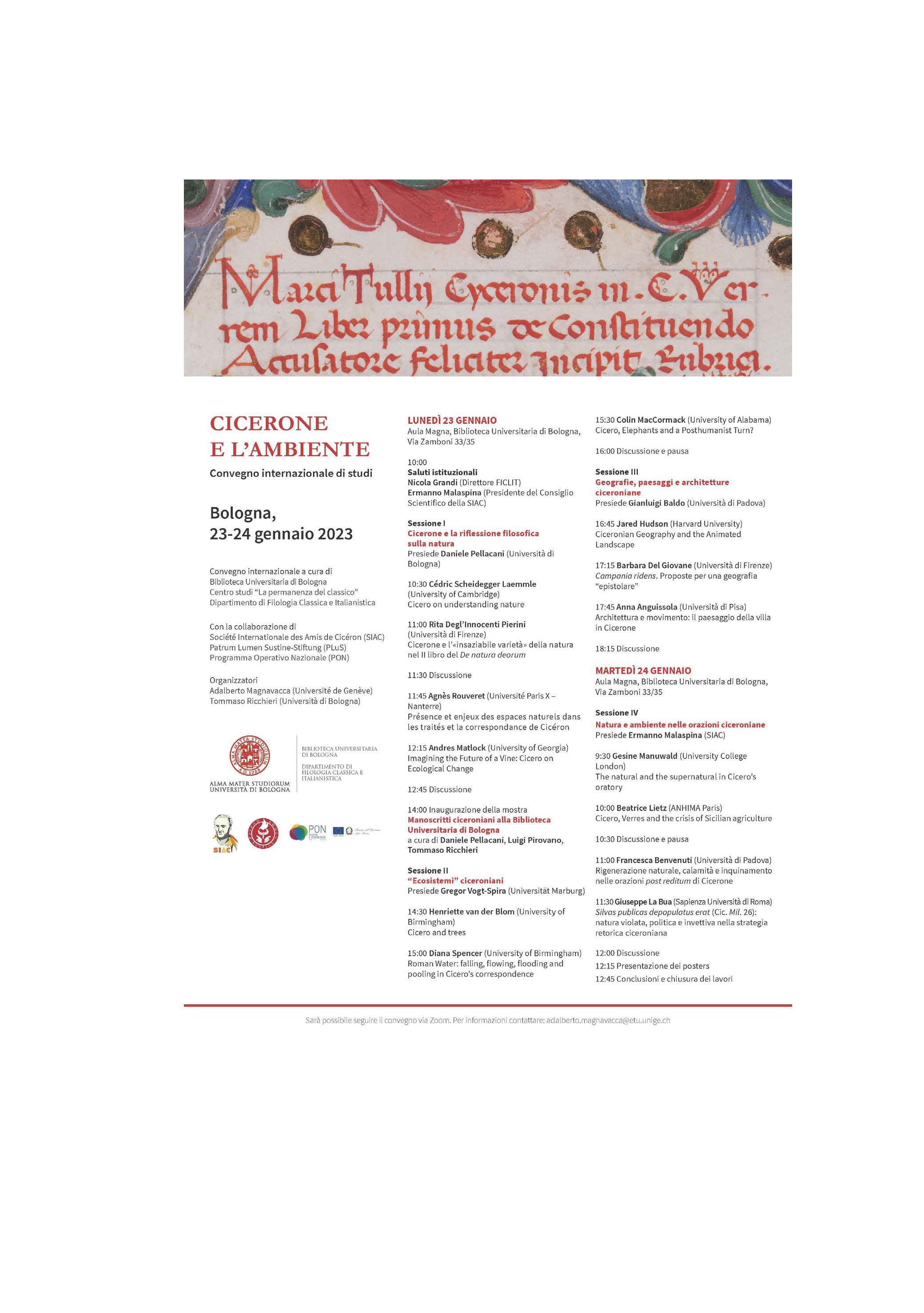Cicero’s De legibus: Environment and the Symbolic Value of locus
DOI:
https://doi.org/10.13135/2532-5353/9342Abstract
The prologues to the first and second books of Cicero’s De legibus uniquely represent a rural environment as the setting of the discussion. While Cicero has a Platonic model in mind, I discuss how his depiction of the rural environment in the De legibus goes beyond its Greek model. This is visible both in the way the surrounding environment provides the context for authorial remarks on the genre and dialogical style of the text but, furthermore, in the way the rural landscape bears symbolic value which links it directly to Roman ancestral values and exempla. As such it may also be read as a counterpart to the city landscape of Athens, a locus related to theoretical virtue and intellectual exempla, which is depicted in De finibus 5. The symbolic investment of rural environment aims at underlining the “practicability” and superiority of Rome’s traditional constitution but also Cicero’s own role as a defender of the res publica.
Downloads
Downloads
Published
How to Cite
Issue
Section
License
Authors who publish with this journal agree to the following terms:
- Authors retain copyright and grant the journal right of first publication with the work simultaneously licensed under a Creative Commons Attribution License that allows others to share the work with an acknowledgement of the work's authorship and initial publication in this journal.
- Authors are able to enter into separate, additional contractual arrangements for the non-exclusive distribution of the journal's published version of the work (e.g., post it to an institutional repository or publish it in a book), with an acknowledgement of its initial publication in this journal.


 Ciceroniana On Line is recognised by ANVUR (the National Agency for the Evaluation of the University System and Research) as a CLASS A journal for the Sciences of Antiquity, Philology, Literature and History of Art (
Ciceroniana On Line is recognised by ANVUR (the National Agency for the Evaluation of the University System and Research) as a CLASS A journal for the Sciences of Antiquity, Philology, Literature and History of Art ( The journal is included in DOAJ. The DOAJ listing of the journals is available at
The journal is included in DOAJ. The DOAJ listing of the journals is available at  The journal is indexed in
The journal is indexed in  The journal has been included in ERIH PLUS. The ERIH PLUS listing of the journals is available at
The journal has been included in ERIH PLUS. The ERIH PLUS listing of the journals is available at 

